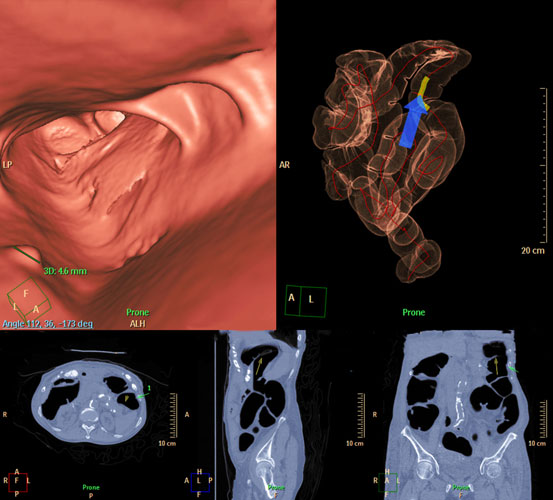Common Colorectal Questions
March is colorectal cancer awareness month and I would like to answer some common questions about this topic!

Let’s start with some definitions:
- Your colon, also known as the large intestine, is the last 5 feet or of your intestines. Your intestines are 10-16 feet in length in total.
- Your rectum is the last 12 centimeters (or 5 inches) of your large intestine.
Cancers of both the colon and rectum are diagnosed the same way, but rectal cancers tend to be more difficult to treat as the layers that make up the rectum allow cancer cells to spread more easily.
What’s new about colorectal screening?
45 is the new 50! The age to begin colorectal cancer screening has decreased to 45. That means everyone aged 45-75 is recommended to have colorectal cancer screening. You may be eligible to begin screening at a younger age if you have a family history of colon cancer. On the other hand, you may be eligible to continue screening past the age of 75 if you are in very good health. Talk to your doctor if you want to know if you are eligible for screening.
What screening tests are available?
- Colonoscopy – This procedure has been around the longest, and is the procedure you will need if either of the next two tests are positive. You should repeat this procedure at least every 10 years.
- FIT stool testing – This is a test you can do at home and I have these kits in the office. This test needs to be repeated every year but is very inexpensive.
- Cologuard stool testing – You may have seen commercials for this stool test that you also do at home. It needs to be repeated every 3 years or so.
What screening test to choose depends on cost, insurance status, convenience, and most of all YOUR preference. Talk to your doctor for more information.
Is a colon polyp cancer?
No! If you have ever had a skin tag, then you know what a colon polyp looks like. Polyps are found on colonoscopy, and can be removed with no pain experienced by the patient. Your colon has no nerve endings that sense pain so you won’t experience pain from a colon polyp removal. Some polyps are completely benign and are called hyperplastic polyps, while some are pre-cancerous, called adenomas. Most polyps that are found are adenomas, and if you have them, you will need a colonoscopy more frequently than every 10 years.
I feel fine. Do I need to be screened?
Yes, you should be screened. I think an important point to emphasize is that screening tests are ONLY done when you have NO symptoms. Therefore, the only time a test is truly considered to be a screening test is when you are feeling fine. There are not very many screening tests that are recommended across all genders, races, etc. Colorectal cancer screening is one of them. Why? The most common first sign of colon cancer is nothing. On the other hand, colon cancer is (relatively) easy to diagnose, easy to catch early, and we can even find and treat PRE-cancerous polyps early and easily. That is the definition of a good screening test!

Can I change my diet to reduce my risk of colorectal cancer?
Yes! Fiber helps to decrease your risk of colorectal cancer. That means eating a diet high in fresh or frozen fruits and veggies and whole grains (whole wheat, brown rice, etc.) will help to decrease your risk. On the other hand, eating a diet high in processed food (fast food, frozen meals, pastries, eating out, etc.) INCREASES your risk of colon cancer.
For more information on this topic, CLICK HERE.
Melissa Boylan MD, FAAFP
Family Physician and Owner of Noreta Family Medicine
NoretaFamilyMed.com

